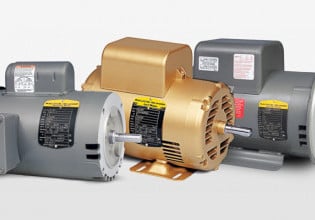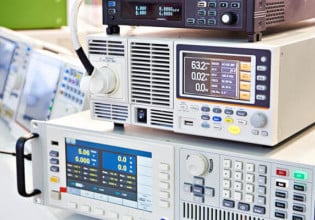What to Expect at APEC 2021
APEC 2021 will be held virtually over four days in June. Here’s a preview of the popular annual power industry conference.
This year’s Applied Power Electronics Conference (or APEC) will be held online from June 14 to June 17. The conference and exhibition will feature professional education seminars, technical and plenary sessions, panel discussions, networking and an exhibition featuring leading players in the power electronics industry.
The 2021 Applied Power Electronics Conference will be held from June 14 to June 17.
APEC 2021 will be held on the virtual event platform Social27, with on-demand access beginning the week before the event. Attendees can watch technical lectures, poster sessions, industry talks and professional education seminars.
As of May 11, APEC’s exhibitor lineup lists 82 participating companies, including some of the industry’s largest companies, such as Texas Instruments, Infineon, Maxim Integrated, Microchip Technology, Mitsubishi Electric, Nexperia, ON Semiconductor, TDK Corporation, STMicroelectronics, Siemens PLM and ROHM Semiconductor.
A series of education seminars will feature practical discussions of relevance to engineers, designers and other industry professionals. Talks will cover semiconductor device selection, traditional and emerging digital control techniques, designing compensators for controlling switch power supplies, SiC power conversion and system packaging for harsh environment applications, EMC design fundamentals, a guide to SiC MOSFET and Schottky applications, maximizing GaN FET and IC performance, and more.
APEC’s technical sessions will cover everything from utility interface power electronics to renewable energy systems to transportation and electric vehicles to wireless power transfer, magnetics, converters, motor drives and inverters, and more areas. Industry sessions will run in conjunction with the technical track, featuring the latest market trends and application verticals in energy storage and harvesting, automotive and transportation, SiC and GaN reliability, wide bandgap semiconductors, data center power solutions, magnetics and more applications.
Plenary sessions will focus on six topics: auxiliary automotive drives, wide bandgap applications, wide bandgap standards, energy storage projects in Native American tribal lands, the present and future of magnetics and other power passives, and quantum computing. Speakers hail from the Graz University of Technology in Austria, STMicroelectronics, Infineon, Texas Instruments, Sandia National Laboratories, Dartmouth College’s Thayer School of Engineering, and IBM Research Quantum Europe and Africa.
Through a lineup of “RAP sessions,” expert panelists will discuss hot issues like distributed vs. centralized control of micro-grid and nano-grid applications, whether high-level integration makes power converters more reliable, and the source of the next generation of magnetics expertise.
Tickets cost $650 for members of the Institute of Electrical and Electronics Engineers (IEEE) and Power Sources Manufacturers Association (PSMA), $395 for IEEE student members and life members, and $750 for non-members. Registration is free for the exhibit-only portion of the event, which includes plenary sessions, RAP sessions and expo hall access.
Every year, APEC typically attracts a turnout of around 6,000 engineers, designers, professionals, executives, and other stakeholders and enthusiasts from around the world. This year will be the first APEC program since 2019, when 5,932 attendees and 299 exhibitors gathered in person in Anaheim, California. In 2020, right as the coronavirus outbreak began to develop across the U.S., APEC organizers canceled the event a week before it was slated to start on March 15 in New Orleans.
The 2021 program was originally scheduled to be held in Phoenix, Arizona, but organizers ultimately decided to transition to a virtual format citing pandemic concerns.






